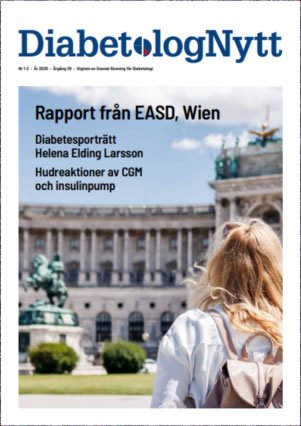CHICAGO — Attendees at next week’s American Diabetes Association (ADA) 2013 Scientific Sessions will find there is ”something for everyone,” said Robert Ratner, MD, the ADA’s chief scientific and medical officer.
The program resembles a menu packed with delicious appetizers from basic science — such as sessions on brown adipose tissue — to exciting ”main courses” detailing key clinical-trial results — for example, the first-ever presentation of the Look AHEAD data — ending in work that has important practical implications for patients and physicians, Dr. Ratner said.
The meeting runs from Friday, June 21, through Tuesday, June 25. More than 1200 presentations by diabetes experts will explore the latest research breakthroughs in the meeting’s eight themed areas, he explained:
-
Acute and chronic complications.
-
Behavioral medicine, clinical nutrition, education, and exercise.
-
Clinical diabetes/therapeutics.
-
Epidemiology/genetics.
-
Immunology/transplantation.
-
Insulin action/molecular metabolism.
-
Integrated physiology/obesity.
-
Islet biology/insulin secretion.
If individuals’ time is limited, the [president’s oral sessions] are far and away the 2 most important presentations. Dr. Robert Ratner
These will include numerous oral sessions, covering therapeutics such as new insulins and nonglycemic effects of incretins, and a host of interesting posters.
But the icing on the cake, said Dr. Ratner, ”will be the presidential oral sessions, 1 on Friday and 1 on Monday.”
”If individuals’ time is limited, these are far and away the 2 most important presentations,” he noted. ”We asked our reviewers to pick out the 3 best abstracts in all of the categories and then narrowed those down to the best 8 basic-science abstracts and the best 8 clinical ones. There will be a great deal of fascinating data,” he told Medscape Medical News.
Late Breakers: HYPOCOMPASS, ACCORD, and ORIGIN
Dr. Ratner said the president’s oral sessions on the afternoon of June 21 and the morning of June 25 will replace what used to be the late breakers in basic science and clinical trials.
The first 3 reports in the clinical session will address practical problems, he said, and include a meta-analysis of the efficacy of carbohydrate counting in type 1 diabetes; lifestyle intervention during early pregnancy in those at risk for gestational diabetes; and a key presentation illustrating that lifestyle change really works in a large national healthcare organization — in this case the US Veterans Affairs system.
The latter ”should have a huge impact in terms of healthcare delivery and how we should be implementing it,” noted Dr. Ratner.
Also featured will be 2 further presentations on type 1 diabetes: the first illustrating how selective cognitive decline is related to focal brain volume loss in type 1 diabetes patients with microangiopathy; and the second, an important multicenter randomized clinical trial, HYPOCOMPASS, which addresses the issue of restoring hypoglycemia awareness and trying to prevent recurrent severe hypoglycemia in adults with long-standing type 1 diabetes.
There will be also be key new data from 2 landmark type 2 diabetes trials: the relationship between insulin exposure and cardiovascular mortality in Action to Control Cardiovascular Risk in Diabetes (ACCORD) and cancer outcomes in patients with dysglycemia on basal insulin from the Outcome Reduction with an Initial Glargine Intervention (ORIGIN) trial.
Finally, there will be the much-awaited first data on a novel therapeutic concept, first proposed by Ralph A. DeFronzo, MD, from the University of Texas Health Science Center, San Antonio, in the Banting Lecture in 2009: initial triple combination therapy in newly diagnosed type 2 diabetes, which appears to be superior to stepwise add-on conventional therapy, said Dr. Ratner.
Each talk will last 10 minutes, followed by a 5-minute Q&A session.
The basic science president’s oral session will cover, among other areas: the novel therapeutic effect of PI3Kγ inhibition in type 1 diabetes; how exercise training alters subcutaneous white adipose tissue in mice and humans; and targeted angiopoietin-1 upregulation, which seems to ameliorate early diabetic glomerulopathy.
First Report of Look AHEAD; New Data From DCCT/EDIC
Other highlights in terms of clinical research will be the long-awaited primary results of Look AHEAD, the large cardiovascular-outcomes trial in overweight/obese patients with type 2 diabetes that was halted early at the end of last year. These will be reported on the afternoon of Monday, June 24.
Headline results showed that there was no difference in the rate of nonfatal myocardial infarction, nonfatal stroke, death, or hospitalization for angina among patients randomly assigned to the intensive lifestyle intervention group vs the control group of education alone, but there were significant reductions in weight and improvements in physical-fitness levels among those in the intensive group.
Another important presentation will involve new data on hard outcomes from the long-running Diabetes Control and Complications Trial/Epidemiology of Diabetes Interventions and Complications (DCCT/EDIC) trial in type 1 diabetes, which is in its 38th year, Dr. Ratner noted.
This consists of an intervention, the DCCT, and a follow-up observational study, EDIC. The DCCT randomly assigned individuals with type 1 diabetes to intensive glycemic control (with insulin) or to conventional therapy (less intensive insulin treatment).
Awards and Tributes, Reception, and a ”Fun Run”
Other notable presentations will include the Banting Medal for Scientific Achievement, which this year will go to Graham Bell, PhD, from the University of Chicago Medicine Kovler Diabetes Center, Illinois, for his work on the genetics of diabetes.
There will also be a tribute to Frederick L. Brancati. MD, who made significant contributions to the field of diabetes epidemiology and who passed away last month after a courageous battle with amyotrophic lateral sclerosis.
And following the first presentations on the afternoon of June 21, there will be an opening reception at the Field Museum, from 8 pm to 10 pm that evening, for which tickets must be purchased.
Also, on June 24, there will be an ADA 5-km ”fun run,” which will be held at 6:30 am at Soldier Field in the heart of the Chicago Museum campus. Those interested in participating can register online or sign up at the fun-run booth during the meeting.
From www.medscape.com
Nyhetsinfo
www red DiabetologNytt

